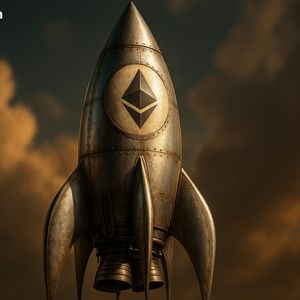Market Pulse
In an era defined by rapid technological advancement, two titans have independently reshaped industries: Artificial Intelligence (AI) and blockchain. AI has driven breakthroughs in automation, data analysis, and predictive capabilities, while blockchain has revolutionized trust, transparency, and decentralization. Increasingly, industry observers and innovators are recognizing that the true transformative power lies not in their separate applications, but in their sophisticated synergy. This convergence promises to unlock unprecedented levels of efficiency, security, and autonomy across digital ecosystems, moving beyond conceptual discussions to tangible architectural frameworks for the next generation of Web3 applications.
Enhancing Data Integrity and Trust
One of the most compelling applications of combining AI with blockchain is in addressing the critical need for data integrity and trust. AI models are only as good as the data they are trained on, and the provenance and immutability offered by blockchain can provide a verifiable layer for datasets. This is particularly crucial in an age of proliferating misinformation and deepfakes. By timestamping and cryptographically linking data to a blockchain, it becomes possible to establish an auditable trail, ensuring that AI models are not fed manipulated or biased information. Moreover, blockchain can facilitate secure, decentralized data marketplaces, enabling data providers to be compensated fairly while ensuring transparency for consumers.
- Immutable Data Logs: Blockchain offers an unalterable record of all data used for AI training and decisions.
- Decentralized Data Marketplaces: Enables transparent and fair exchange of datasets, fostering innovation.
- Verifiable AI Model Outputs: Critical for applications where AI decisions have high stakes, providing an auditable proof of origin.
Decentralized AI and Autonomous Agents
The philosophical underpinnings of blockchain — decentralization and censorship resistance — offer a natural extension to the development of AI. By leveraging blockchain, AI systems can be designed to operate without a single point of control, reducing vulnerabilities to manipulation and enabling more resilient, autonomous agents. Decentralized Autonomous Organizations (DAOs) can govern AI protocols, ensuring that the collective community, rather than a single entity, dictates the parameters and ethical guidelines for AI behavior. This paradigm shift could pave the way for truly trustless automation, where AI-powered smart contracts execute based on verifiable external data, enhancing the reliability and fairness of automated processes.
- DAO-Governed AI Systems: Community-led control over AI development and deployment.
- AI-Powered Smart Contracts: Enhanced automation with intelligent decision-making capabilities.
- Trustless Automation: Reducing reliance on centralized authorities for operational integrity.
Optimizing Blockchain Operations with AI
The benefits of this synergy are bidirectional. AI can also significantly enhance the efficiency, security, and scalability of blockchain networks themselves. Machine learning algorithms can be deployed to monitor network activity, detect anomalous patterns indicative of potential attacks, or identify bottlenecks in transaction processing. Predictive AI can help optimize resource allocation, leading to more efficient energy consumption in proof-of-work systems or improved transaction throughput in others. Furthermore, AI can aid in the development of more robust and secure smart contracts by identifying vulnerabilities that might escape human review, contributing to a more resilient blockchain infrastructure.
- Threat Detection in Smart Contracts: AI can identify potential bugs and exploits before deployment.
- Dynamic Network Load Balancing: Optimizing transaction processing and resource allocation for scalability.
- Optimizing Consensus Mechanisms: AI could contribute to more energy-efficient or faster consensus protocols.
Challenges and Future Outlook
Despite the immense potential, the integration of AI and blockchain is not without its hurdles. The computational demands of running complex AI models on-chain are significant, often clashing with the inherent scalability limitations of current blockchain architectures. Data privacy remains a complex issue, especially when combining vast datasets with public ledger transparency. Interoperability between disparate AI systems and blockchain networks also presents a technical challenge. However, ongoing research into zero-knowledge proofs, sharding, and more efficient consensus mechanisms, coupled with advancements in decentralized AI frameworks, are actively addressing these limitations. The future envisions a symbiotic relationship where each technology strengthens the other, leading to innovations we are only beginning to imagine.
- Scalability for AI-Driven Transactions: Ensuring blockchain can handle the volume of AI interactions.
- Ethical AI Governance On-Chain: Establishing and enforcing ethical guidelines in a decentralized manner.
- Developing Standardized Interfaces: Creating common protocols for AI and blockchain communication.
Conclusion
The convergence of AI and blockchain technology represents a powerful frontier in the evolution of digital infrastructure. From bolstering data integrity and fostering decentralized AI agents to optimizing the underlying blockchain operations, the symbiotic relationship between these two transformative forces is poised to redefine trust, efficiency, and autonomy in the digital realm. While challenges persist in terms of computational overhead and interoperability, the ongoing innovation and dedicated research in both fields suggest that a future where AI and blockchain seamlessly interoperate is not only possible but increasingly inevitable, promising a new era of intelligent, transparent, and robust decentralized applications.
Pros (Bullish Points)
- Enhanced data integrity and transparency through verifiable AI training data on blockchain.
- Development of more robust, decentralized, and censorship-resistant AI systems and autonomous agents.
- AI's capability to optimize blockchain network security, efficiency, and scalability.
Cons (Bearish Points)
- Significant computational demands and scalability challenges for integrating complex AI on-chain.
- Ongoing hurdles in ensuring data privacy and achieving seamless interoperability between diverse AI and blockchain systems.
- The complexity of establishing and enforcing ethical AI governance in a decentralized environment.



